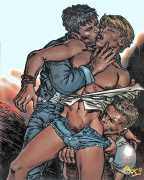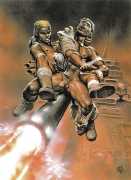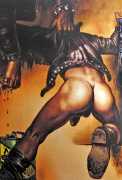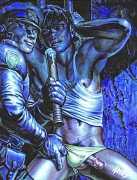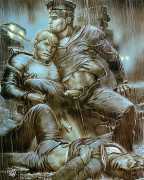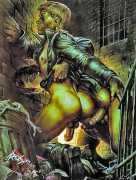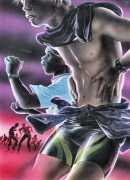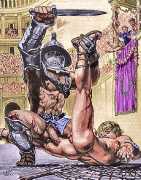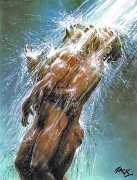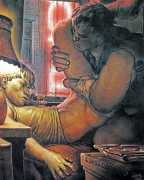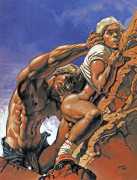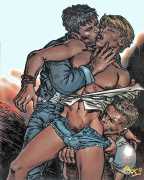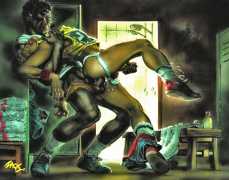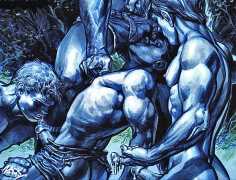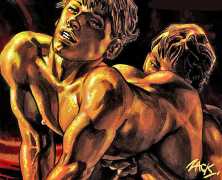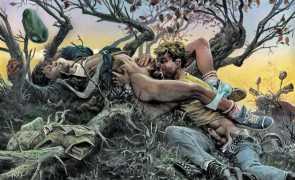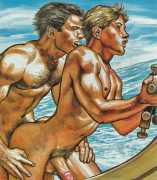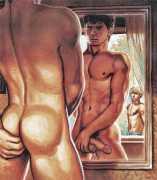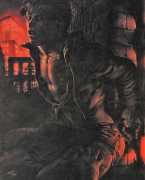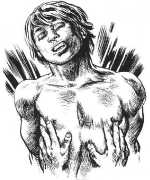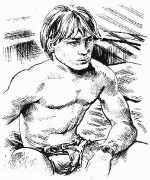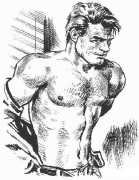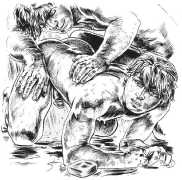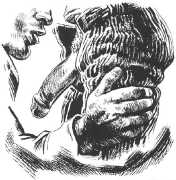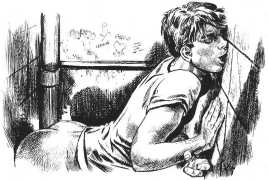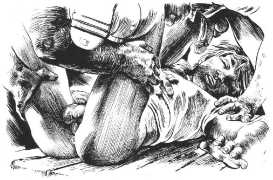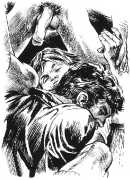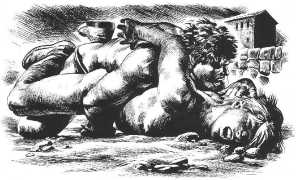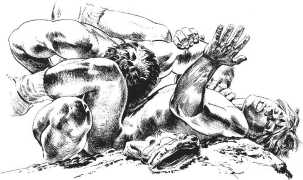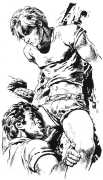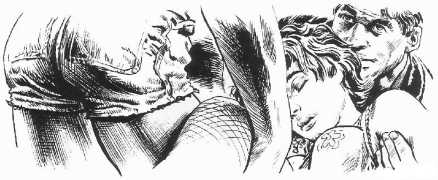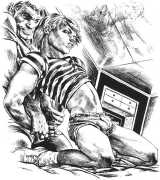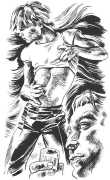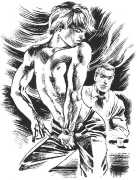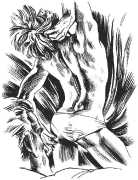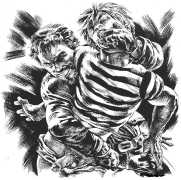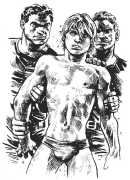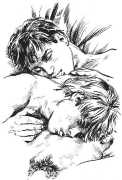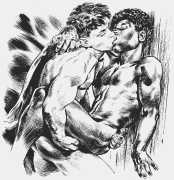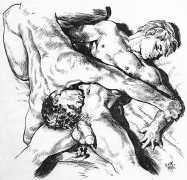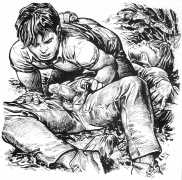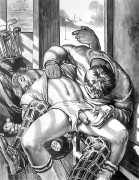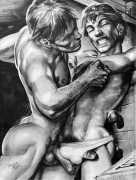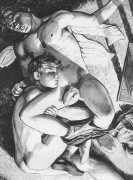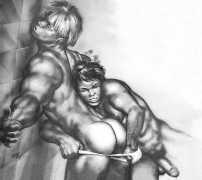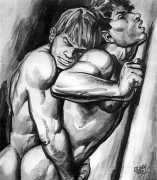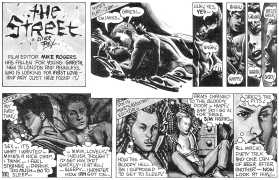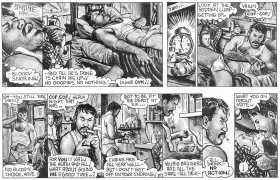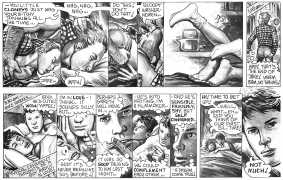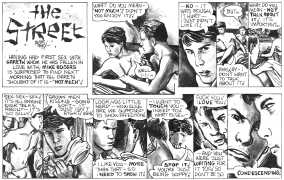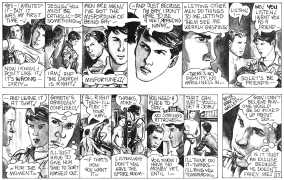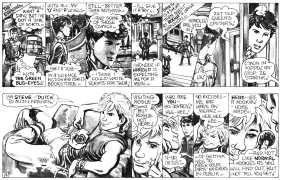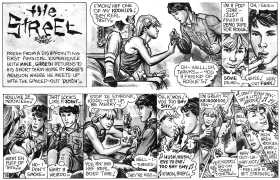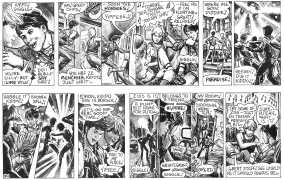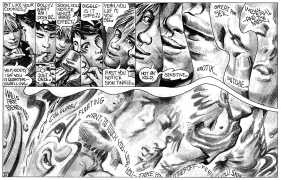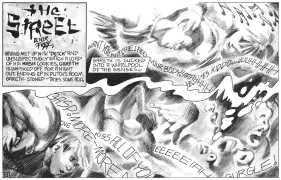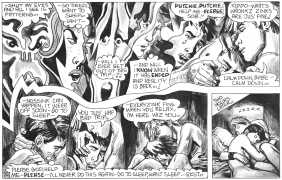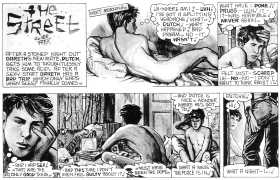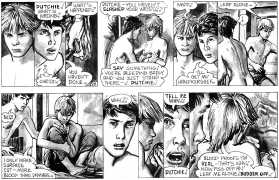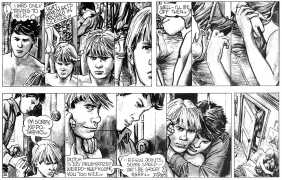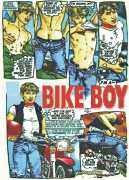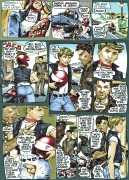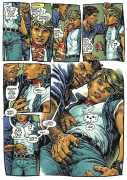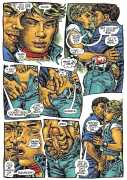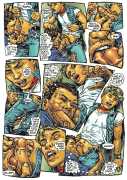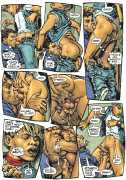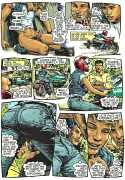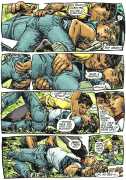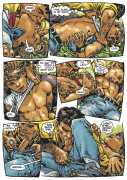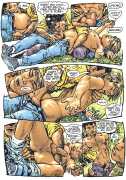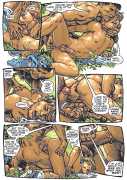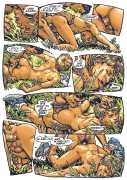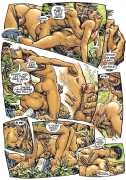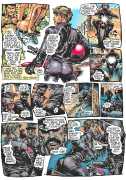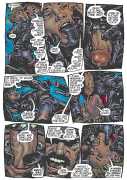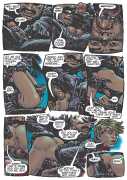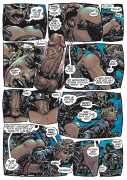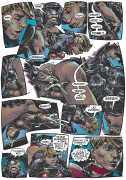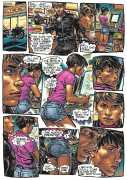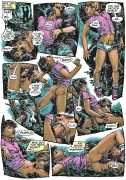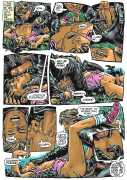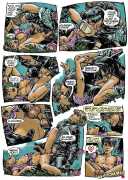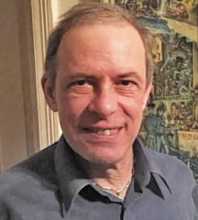 Oliver Frey, better known to his many admirers under his pseudonym Zack, grew up in Zürich, Switzerland, the eldest of three children. He grew up a fluent Italian speaker, since his parents hailed from Ticino where Swiss-Italian is the language, but schooled in Zürich he also learned German and French. In 1956, when he was almost eight, the family moved to north London, where the youngster discovered Eagle comic and the cover hero Dan Dare, Space Pilot of the Future.
Oliver Frey, better known to his many admirers under his pseudonym Zack, grew up in Zürich, Switzerland, the eldest of three children. He grew up a fluent Italian speaker, since his parents hailed from Ticino where Swiss-Italian is the language, but schooled in Zürich he also learned German and French. In 1956, when he was almost eight, the family moved to north London, where the youngster discovered Eagle comic and the cover hero Dan Dare, Space Pilot of the Future.
When he started school Frey discovered that most of his schoolmates were comics-mad, especially for Eagle. Reading the weekly comic and watching television, he soon learned English, and then he started to copy the drawings of Eagle’s artists. The feeling of bodies in movement, often in violent action, captured his imagination. On leaving school he gained a place at the London Film School, and started the two-year intensive course in January 1969.
While his parents paid the tuition expenses, Frey had to support himself. He looked around for freelance illustration work and found it in the Fleetway War Picture Library series of comics. His association with the War Picture Library kept him busy and in funds, resulting in dozens of stories and covers before he stopped in the late 1970s. In addition to strips for Fleetway, he worked for IPC Comics’ prestigious Look & Learn and its spin-off Speed & Power, and illustrated children’s books for Souvenir, Hamlyn, Usborne and Oxford University Press.
In 1976 Frey took over from Don Lawrence on Look & Learn’s celebrated colour strip ‘The Trigan Empire’, which he painted weekly for just over a year, by which time other events began to occupy his time. As a young teenager he sketched images of a more sexual nature, always homoerotic. At some point during 1975, Frey got hold of a copy of Playguy, published by Incognito. The first thing to catch his eye in Playguy was its comic strip; he thought it pretty poor amateurish stuff and knew he could do better. He immediately sat down, thought up a story, produced the three-page ‘The Hitchhiker’, and sent it to Incognito. Playguy’s editor, Ian David Baker, instantly saw its worth and published the story. He commissioned a monthly series, and Oliver Frey’s professional gay career was under way.
Early in 1976 Incognito folded, but deliverance was at hand in the form of Alan Purnell, a former partner at Incognito, who had taken with him HIM Exclusive and renamed it HIM International. Purnell wanted a tough, butch comic-strip, and so ‘Rogue’ was born, and for seven years the no-nonsense sex-machine manhandled his way monthly through endless hunky young men. Frey also drew and painted innumerable illustrations to accompany erotic stories, both in black and white and colour. Before long a growing number of gay organisations were lining up to commission Frey illustrations.

In 1978 Frey and his partner Roger Kean joined forces with Purnell to form Street Level, which continued to publish HIM together with Teenage Dreams, Hot Dog, and the HIM Gay Library series. Street Level also became involved with the gay club Heaven, which opened its doors in December 1979, arranging theme nights promoted through HIM magazine. Heaven’s Roman Games Night made news for its extravagant gladiatorial fight, slave auctions, and the culminating collapse of a huge Roman temple, designed of course by Frey.
In the spring of 1982 police from the Obscene Publications Squad marched into Street Level’s premises and seized all the stock and work in progress. The matter never came to court, but the loss of so much stock and future publications wrecked the company. Frey and Kean sold the rights in all the titles to Millivres, publishers of the HIM rival, Zipper. In October 1982 they moved from London to the small market town of Ludlow, where for a year Frey continued producing ‘Rogue’ strips for Millivres’ Mister magazine, and created a new gay comic-strip called ‘The Street’ for the re-launched HIM lifestyle magazine, later renamed Gay Times.
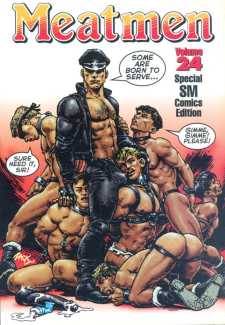 In 1998 Frey approached Californian publisher Winston Leyland with samples intended for the Meatmen comic books. Leyland was taken by the quality and immediately commissioned a series of stories, which included Message to the Emperor, Slaves to Lust, and Teasy Meat. Frey’s best known comic strips followed, including Bike Boy, Tender Bait, and Funfair Surprise. As computer games developed, he produced artwork for many of the best-known games for consoles like the C64 and ZX-Spectrum, and in later years covers for the magazine Retro Gamer.
In 1998 Frey approached Californian publisher Winston Leyland with samples intended for the Meatmen comic books. Leyland was taken by the quality and immediately commissioned a series of stories, which included Message to the Emperor, Slaves to Lust, and Teasy Meat. Frey’s best known comic strips followed, including Bike Boy, Tender Bait, and Funfair Surprise. As computer games developed, he produced artwork for many of the best-known games for consoles like the C64 and ZX-Spectrum, and in later years covers for the magazine Retro Gamer.
Oliver Frey gained a ready and appreciative growing audience, letting his imagination flow freely onto paper to the great enjoyment of his many thousands of fans.

